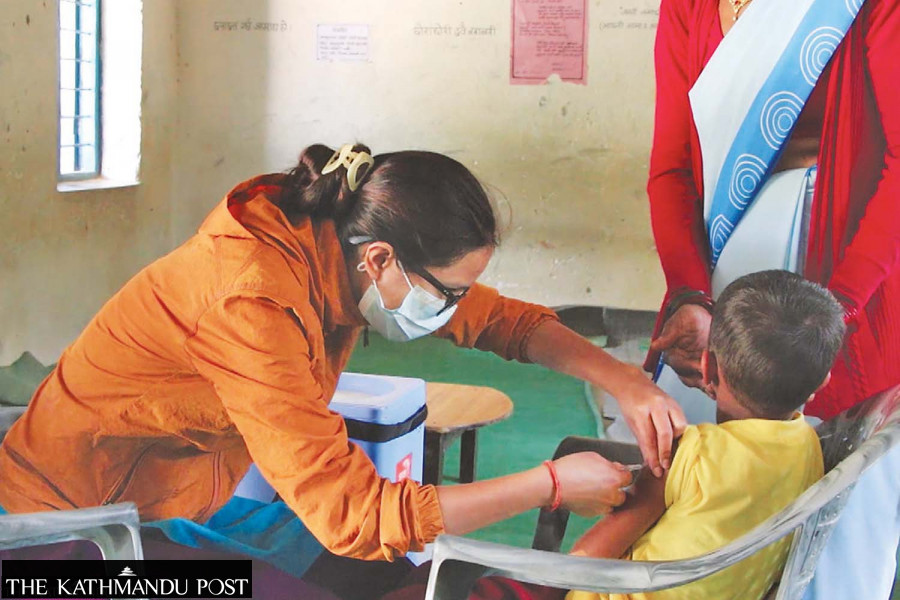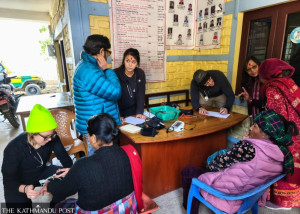Health
Nepal to continue rubella shots despite eliminating the disease
The disease could return if vaccination is stopped, officials say. Measles elimination goal set for 2026.
Post Report
Nepal will continue administering the rubella vaccine as part of its routine immunisation programme, even though the country has eliminated the disease, which is caused by a highly contagious virus.
Officials say the disease could reemerge anytime if immunisation is stopped.
“We have been administering vaccines against diphtheria, whooping cough and others for years, even though there have been no cases for years,” said Dr Abhiyan Gautam, chief of the Immunisation Section at the Family Welfare Division under the Department of Health Services. “So, we have to continue the rubella vaccine as usual. The deadly disease has just been eliminated, not eradicated.”
Rubella, or German measles, is a highly contagious viral infection. It is especially dangerous for pregnant women, as infection can lead to miscarriage, stillbirth, or a range of lifelong and debilitating birth defects. But rubella is preventable with safe and cost-effective vaccines
The World Health Organisation announced on Monday that Nepal had eliminated rubella as a public health problem. The UN health body in its statement described it as a remarkable achievement for a country making concerted efforts to protect its people from vaccine-preventable diseases.
Nepal is the sixth country in WHO South-East Asia to achieve rubella elimination. The region has prioritised eliminating measles and rubella as public health problems by 2026. Bhutan, North Korea, the Maldives, and Timor-Leste have already eliminated measles, and now Nepal has eliminated rubella.
Nepal introduced a rubella-containing vaccine in its immunisation programme in 2012 with a nationwide campaign targeting children aged between 9 months and 15 years. A second dose was added to the routine immunisation schedule in 2016.
Four national campaigns in 2012, 2016, 2020, and 2024 helped increase access, despite major public health emergencies such as the 2015 earthquakes and the Covid pandemic in 2019-21. By 2024, Nepal achieved over 95 percent coverage for at least one dose of the rubella vaccine, according to the UN health body.
“We achieved the rubella elimination goal prior to the deadline,” said Gautam. “We are also in line to eliminate measles by 2026. Measles cases have declined significantly, and we will request international independent verification next year if we succeed in preventing any new outbreak.”
For independent verification, there should be no new outbreak for three consecutive years, officials say.
Measles is also a highly contagious viral disease transmitted through fluids from the nose, mouth or throat of infected persons. The disease can be prevented with a two-dose vaccine, first administered at nine months of age and then at 15 months. The government provides measles’ vaccines for free at health facilities across the country.
Nepal had committed to eliminating measles by 2023 after missing the earlier deadline of 2019. However, a massive measles outbreak in 2022 and 2023 hampered the country’s progress towards the goal.
To achieve measles elimination status, there should be fewer than five cases per 1,000,000 population, or no cases throughout the year. Gautam said that currently, there is around one positive case in per million population.
Measles was endemic in Nepal, with an average of 90,000 cases recorded every year from 1994 to 2004. Routine measles vaccination began in the country in 1979, starting with three districts. The campaign was extended nationwide after 10 years.




 20.12°C Kathmandu
20.12°C Kathmandu













